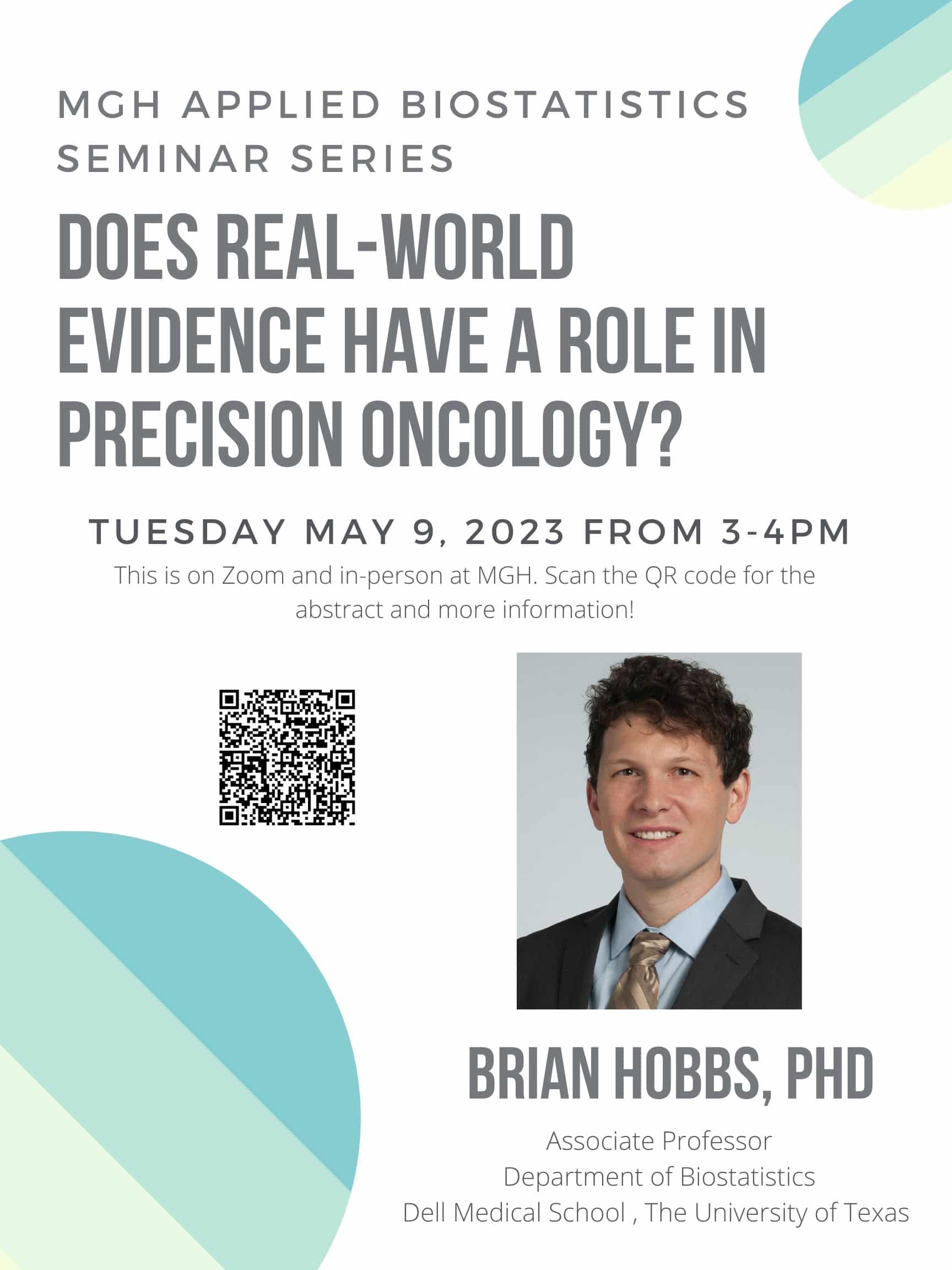Please join us for the next installment of the MGH Biostatistics Applied Biostatistics Seminar Series, a seminar series designed to introduce researchers to intermediate topics that are highly relevant to clinical biostatistical research. Presenters will introduce us to their area of expertise and motivate the use of these methods with concrete clinical examples.
Does Real-World Evidence have a role in Precision Oncology?
Tuesday May 9, 2023, 3:00-4:00pm
Hybrid event: In-person, 50 Staniford St. Ste 560 Large Conference Room and on Zoom (https://partners.zoom.us/j/84315824841)
Speaker: Brian Hobbs, PhD, Associate Professor, Dell Medical School, The University of Texas
Abstract: The FDA instituted a program for Accelerated Approval in 1992, which allowed for approvals on the basis of surrogate endpoints for drugs treating serious conditions that filled an unmet medical need. The Food and Drug Administration Safety Innovations Act, passed in 2012, allows accelerated approvals for appropriate drugs and indications by evaluating the effects of drugs on surrogate markers. More recently, the FDA has established three additional pathways to speed the review process for emerging therapies. These changes prompted innovations in trial design with master protocol and seamless designs. Immune checkpoint inhibitors (ICIs) have yielded promising therapies for patients experiencing refractory cancers. Trials evaluating ICIs made extensive use of phase Ib, enrolling hundreds and even more than one thousand patients into dose expansion cohorts following dose-escalation spanning multiple tumor types. This represents a departure from conventional drug development strategies, for which dose expansion cohorts were used in roughly 25% of phase trials. Moreover, in 2021 two drugs, Atezolizumab and Durvalumab, were voluntarily withdrawn from accelerated approvals for PD-L1 inhibition in advanced or metastatic bladder cancer. This presentation considers the statistical implications of expansive, uncontrolled early phase trials and discusses the potential role for real-world evidence in this setting.
Please contact tthaweethai@mgh.harvard.edu with any questions.


